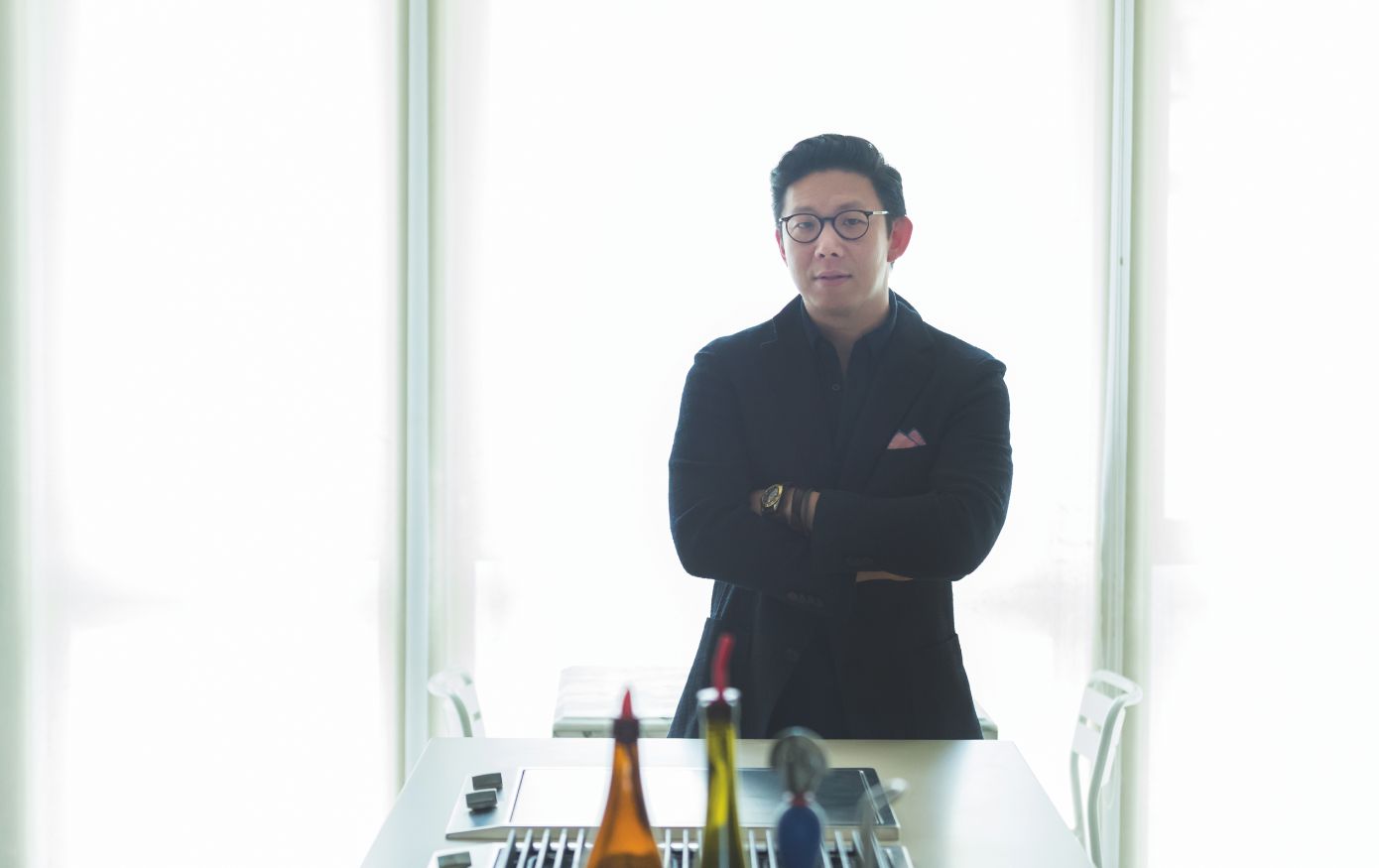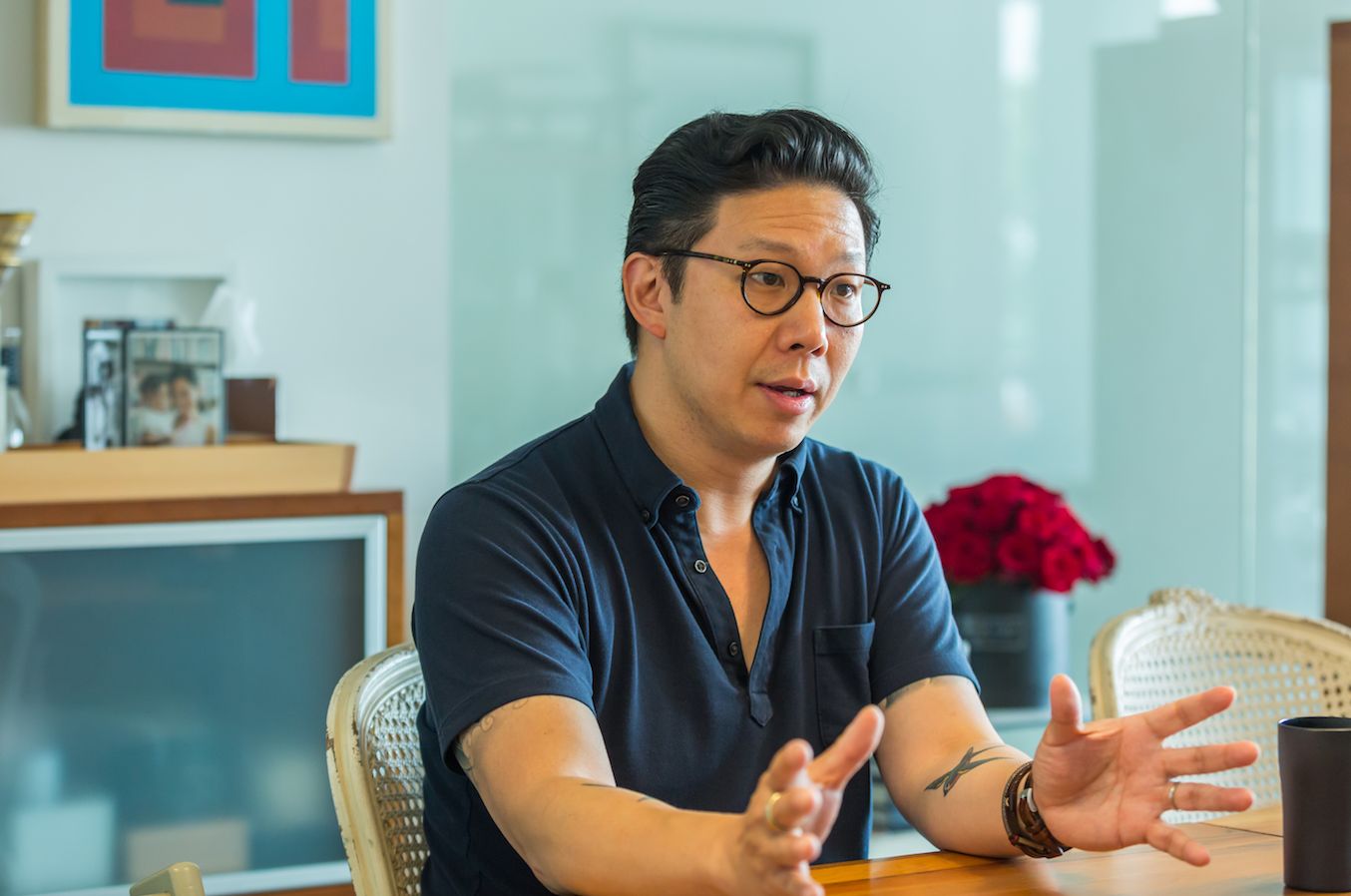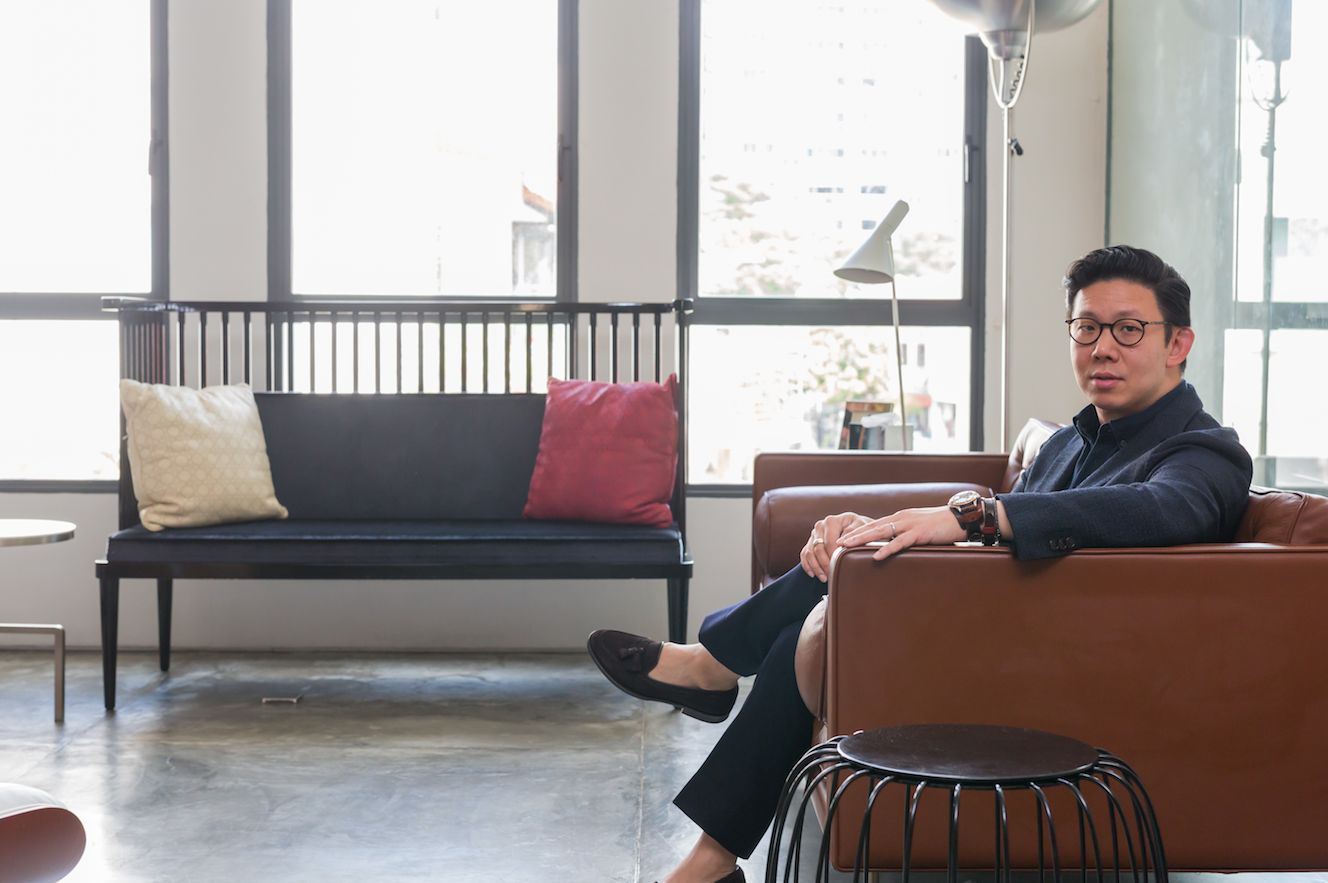If you were a young, urban professional in the early noughties, you would have a rough time finding a better role model than Mr. Aun Koh, whose career trajectory was nothing short of spectacular – curated, as you might put it. He was back then the man behind East magazine, regarded as the relevant viewpoint on every important matter that was transforming Asia. Others would call it ‘ahead of its time’, by which they meant a vanguard, if not necessarily a commercial success. And the readers, if not necessarily the advertisers, got it.
When the magazine folded, Mr. Koh launched with his wife, Ms. Su-Lyn Tan, a PR agency called The Ate Group, which sought to draw public attention to emerging talking points about the brands they chose to represent: Alila Hotels’ commitment to sustainability, at a time when gaudy chandeliers and chintzy furniture defined hotel lobbies, being one of them. Again, the public had something to say: Mr. Koh has crossed over to the dark side.
He would reprise the publisher’s role at (now defunct) Pan Pac Media where he launched a handful of titles, including the ultra-luxe, super glossy, large-format Lookbook. It was a period of what he would later call ‘mini creative explosion’ when local talents, among them Jason Coates, Geoff Ang, and Keith Low, were collectively pushing the envelope. The venture folded after setting a creative benchmark in magazine publishing.
Mr. Koh would surprise the public again when he joined the National Arts Council – a civil servant! – where he helped launch fresh ideas at the Singapore Writers Festival. At NAC, he would be told that literature was understood as serious fiction and poetry as far as the powers that be were concerned, and there he was making a case for the inclusion of creative non-fiction, sci-fi, documentary, digressive journalism, and blogs to the festival. Blogs. Can you imagine?
Undeterred, and with the encouragement of a seasoned and forward-looking festival director, he started what would become a breakout Singapore blog, Chubby Hubby, which would make him a sought-after food writer around the world. “I couldn’t blog about race, religion, and politics, but food was innocuous,” he tells me, “I love it and my wife was a food journalist for a long time.” He calls himself lucky for having been there before blogs became more common. “Nobody was dong it for the money. We were all in it for the passion. It was a tight group that looked at and after each other. We knew which blogs were well written and well photographed. When we traveled, we would meet fellow food writers from different parts of the world.”
From the Arts Council, and after a break figuring out what he wanted to do next, he joined the non-profit NVPC. “I knew Laurence Lien (then chief executive) and he asked if I would join him to do some new things at the organization.”
“There was definitely no life plan that led me down this route,” he says. “A typical Chinese mother would have a nightmare looking at my career path. But I think there were commonalities, which, in the early part of my career, I did not immediately see. In hindsight, I realize that it has really has been about storytelling, about building communities, and finding opportunities to help promote talent and creativity in different forms.
There’s nothing surprising about Mr. Koh’s latest incarnations, although it’s still exciting to hear that he remains in the scene. (He has relinquished his management position at The Ate Group, and now “sits quietly on the board”.) He’s hosting a TV series that digs deep into the vanishing food cultures of Asia, produced by ThreeSixZero Production for Channel News Asia. He has also co-founded a private members’ club Straits Clan.
The first obviously goes back to Chubby Hubby days, and the second to a handful of other things he has accomplished, whether at the Arts Council or NVPC, bringing people and their ideas together.
“Someone asked me if the Straits Clan were the physical embodiment of East because it’s also way of gathering people,” he says. There are indeed strong parallels between the two: both sought to bring the people who matter together – the first one on the pages of a magazine, the second to a physical space. Both are also founded on the notion that the people who matter are those who bring about positive change to society.
“There are different criteria for judging people. At Straits Clan, we’re not interested in those who think they’re amazing because they have tons of money or have they come from historic families. We want people who are driving change—in business, science, industry, lifestyle, fashion, music. And I believe that’s how society should be governed.
“Very visibly, a lot of these social tribes are looking for other social tribes. Brilliant fashion designers may want (to meet) cool photographers or venture capitalists. Can we build a space for people who are inspiring, talented, open-minded and curious?”
Mr. Koh and his co-founders told the membership committee, to whom they gave an authority to say yes or no, that there’s a criteria to think about: Don’t let someone past the gate if you know they’re obnoxious; if you know they are rude. “In layman’s term, we have a ‘No A**hole Policy’.”
The founders broke Singapore down into 20 sectors: academia, government, professions, and so on, and they put in names of a couple of hundreds of people they know or have read about as ideal members. “We placed (the names) in three buckets: entrepreneurs, creatives, social leaders. Then we asked, ‘What about these people makes us feel this way? Why do we like them?’”
Those who did not make the cut will not be necessarily turned away. An abiding passion for something made the club quite open, Mr. Koh says. “Shared passion for doing volunteer work, creative enterprise, reading to children, it may be shared views about community issues…. In a club environment people can actually rub shoulders with others with whom they can connect.”
But as Mr. Koh is aware that the road to damnation is paved with good intention, he is mindful of the business side of the venture. “It has to be commercially viable. We looked at models of clubs and even businesses like gyms. The traditional model charges a very high membership fee, which funds the capital expenditure and gives a huge cash reserve to write off expenses.
“A lot of the clubs in the UK are doing the opposite: We’re gonna charge low fee up front, and we’re gonna hope to reach a critical mass at some point. What we’re offering is the lowest membership fee in town to a club that delivers five-star service,” he says.
Mr. Koh is aware that the venture might take about three years before it turns a profit. “Other private clubs are profitable from day one – after charging a very high membership fee. We have to make sure our investors understood that.”
Groucho Marx was supposed to have said, “I will not want to be a member of a club that would have me as a member.” There’s a necessary elitism, or a rank sense of exclusivity if you wish, that makes a private club alluring. I told this to Mr. Koh.
“We use a different yardstick,” he says.













 Back
Back
